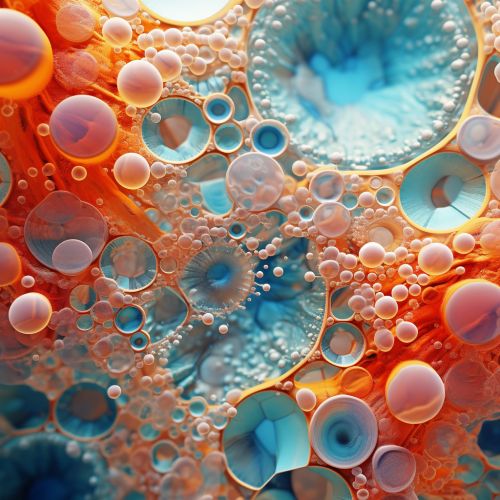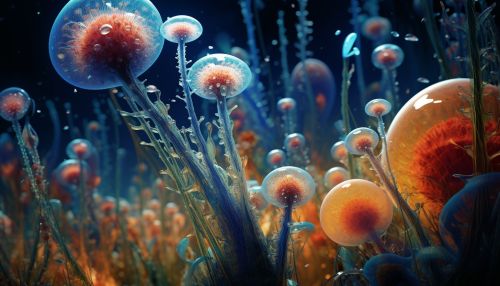Mechanisms of Hormesis in Organismal Aging
Introduction
Hormesis is a biological phenomenon whereby a beneficial effect (improved health, stress tolerance, growth or longevity) results from exposure to low doses of an agent that is otherwise toxic or lethal when given at higher doses. Hormesis is a dose-response phenomenon characterized by low-dose stimulation and high-dose inhibition. It has been observed in a wide range of organisms, from bacteria and plants to insects and mammals.


Mechanisms of Hormesis
The mechanisms of hormesis are complex and multifaceted, involving a variety of cellular and molecular processes. These include the activation of stress response pathways, the induction of antioxidant defenses, the modulation of inflammation, the enhancement of DNA repair mechanisms, and the promotion of protein homeostasis.
Stress Response Pathways
One of the key mechanisms of hormesis is the activation of stress response pathways. These pathways are designed to protect the organism from damage caused by various stressors, such as heat, cold, radiation, toxins, and oxidative stress. When these pathways are activated, they trigger a series of protective responses that help the organism to cope with the stressor and to repair any damage that has occurred.
Antioxidant Defenses
Another important mechanism of hormesis is the induction of antioxidant defenses. Antioxidants are molecules that neutralize harmful free radicals, which are produced as a byproduct of normal cellular metabolism and can cause damage to cells if they are not properly controlled. Hormesis can stimulate the production of these antioxidants, thereby enhancing the organism's ability to defend itself against oxidative stress.
Inflammation Modulation
Hormesis can also modulate inflammation, which is a key component of the aging process. Chronic inflammation can lead to tissue damage and can contribute to a variety of age-related diseases, including heart disease, cancer, and Alzheimer's disease. By modulating inflammation, hormesis can potentially slow down the aging process and extend the lifespan of the organism.
DNA Repair Mechanisms
DNA repair mechanisms are another important aspect of hormesis. DNA damage is a major cause of aging and age-related diseases, and the ability to repair this damage is critical for maintaining the health and longevity of the organism. Hormesis can enhance the activity of DNA repair enzymes, thereby improving the organism's ability to repair DNA damage and potentially extending its lifespan.
Protein Homeostasis
Finally, hormesis can promote protein homeostasis, which is the balance between protein synthesis, folding, and degradation. Disruptions in protein homeostasis can lead to the accumulation of misfolded or damaged proteins, which can cause cellular dysfunction and contribute to aging and age-related diseases. Hormesis can enhance the mechanisms that maintain protein homeostasis, thereby improving cellular function and potentially extending the lifespan of the organism.
Hormesis in Organismal Aging
The concept of hormesis has significant implications for our understanding of organismal aging. Aging is a complex process that involves a variety of cellular and molecular changes, many of which can be influenced by hormesis. By activating stress response pathways, inducing antioxidant defenses, modulating inflammation, enhancing DNA repair mechanisms, and promoting protein homeostasis, hormesis can potentially slow down the aging process and extend the lifespan of the organism.
Hormesis and Longevity
Several studies have shown that hormesis can extend the lifespan of various organisms, from yeast and worms to flies and mice. This is thought to be due to the protective effects of hormesis, which can enhance the organism's ability to cope with stress and repair damage. By promoting health and resilience, hormesis can potentially extend the lifespan of the organism.
Hormesis and Age-Related Diseases
In addition to its effects on longevity, hormesis can also influence the development of age-related diseases. Many of these diseases, including heart disease, cancer, and Alzheimer's disease, are associated with chronic inflammation, oxidative stress, DNA damage, and disruptions in protein homeostasis. By modulating these processes, hormesis can potentially delay the onset of these diseases and improve the healthspan of the organism.
Future Directions and Implications
The concept of hormesis has significant implications for our understanding of aging and age-related diseases. By elucidating the mechanisms of hormesis, we may be able to develop interventions that can slow down the aging process and extend the healthspan of the organism. This could have profound implications for human health and longevity, and could potentially lead to the development of novel therapies for a variety of age-related diseases.
